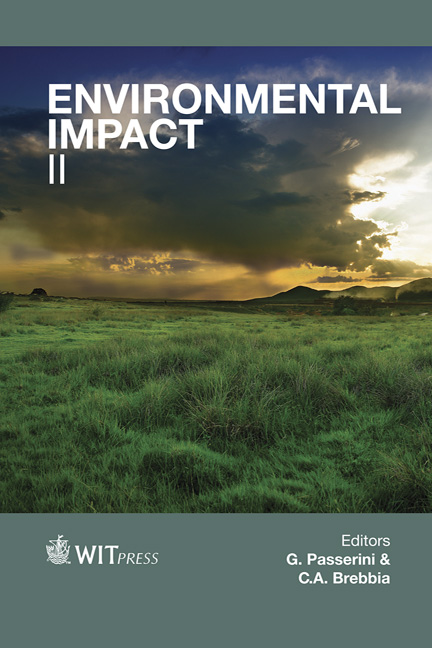Chemical Characterization Of Ambient Suspended Particles In An Urban Area Affected By Industrial Activities
Price
Free (open access)
Transaction
Volume
181
Pages
12
Page Range
635 - 646
Published
2014
Size
925 kb
Paper DOI
10.2495/EID140541
Copyright
WIT Press
Author(s)
A. V. Silva, S. M. Almeida, C. M. Oliveira & A. M. Miranda
Abstract
Urban areas are affected not only by road traffic but also by industrial activities that are frequently located close to cities. As these areas contain large concentrations of people, they exhibit both the highest levels of pollution and the largest targets of impact. Several reports revealed significant correlations between particulate matter (PM) levels and increased respiratory and cardiovascular diseases or mortality. Consequently, understanding and controlling air pollution in these areas is then important to identify mitigation actions to improve the air quality. The main objectives of this study were to perform a chemical characterization of particulate matter (PM2.5 and PM2.5-10) sampled in Setúbal – Portugal, to analyse seasonal trends and to identify sources and formation mechanisms of particles. PM2.5 and PM2.5-10 were collected in a monitoring station, classified as urban traffic, in the winter and summer of 2011. Sampling was performed on a 12h basis using a Gent sampler. The exposed nuclepore filters were measured by gravimetry and cut into two parts: one for element characterization using Instrumental Neutron Activation Analysis and the other for the water soluble ions determination by Ion Chromatography. Source apportionment was performed by integrating time variability, night and day comparisons, enrichment factors, fine to coarse ratios and principal
Keywords
urban aerosols, PM, water soluble inorganic ions, trace elements





